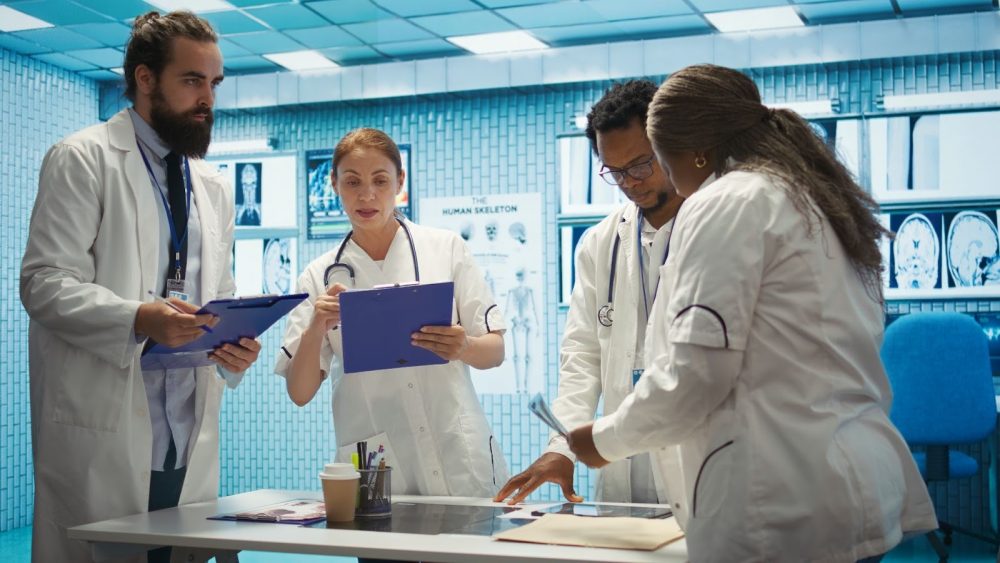Spain has grown into one of the primary locations for various international research projects. For trials, many global medical teams travel to Spain for its diverse population, strong research infrastructure, and skilled healthcare professionals. Still, anyone who has stepped into the clinical research world knows one thing very well: clear communication is everything. From consent forms to patient diaries, every piece of information has to be understood without a glitch. That is why research groups more often than not collaborate with a Spanish translation company when they start working in the country. It keeps communication smooth and protects the integrity of the study right from day one.
Why Clear Language Shapes Better Research
When subjects come from diverse linguistic backgrounds, clarity becomes imperative. Clinical research is based on trust, and the first step toward trust is understanding. If a patient receives a form full of terms they do not understand, they will most likely be hesitant or misunderstand the purpose of the study. This small moment has implications for large outcomes.
Spain receives participants from many regions, especially in urban areas. People come with varied levels of fluency in Spanish. Some of them speak fluent Spanish; others are limited to talking about daily life only. Scientific language, however, is far different from the colloquial or vernacular way of talking. It incorporates dosing, risks, instructions, and follow-ups. Such information is important. When appropriately translated, participants feel secure about their involvement in the process.
Informed Consent That Truly Informs
One of the most sensitive documents in any clinical trial is the informed consent form. It explains the aim of the study, the possible risks, the expected outcomes, and the rights of the participant. Sometimes one unclear line might give rise to doubts. For international teams working in Spain, accurate translation will turn a long, complex document into something a participant is able to understand with confidence.
When the language is clear, participants can make decisions that feel right for them. It also protects research teams, with documented understanding showing that every step was performed in an ethical way.
Clear communication also helps in instances where there are participants of different age groups within the research center. Modern terms may be understood easily by young people, but to older participants, simpler language is what best serves them. Translation bridges the gap without losing its meaning.
Patient Diaries and Daily Notes
Many clinical trials depend on patient diaries. These can be handwritten journals, entries via mobile apps, or digital logs. Participants record their feelings when they take their medications or the side effects they experience.
If these diaries are not that easily understandable, then the entire study will end up getting unreliable information. Minor misunderstandings of writing symptoms incorrectly or misreading dosage instructions result in data that does not reflect the participant’s true situation.
Making Instructions for Studying Easier to Follow
Imagine a global research team organizing a clinical trial in Barcelona or Málaga. They have protocols in another language, sometimes in English, sometimes in another European language. When those documents reach the research site, the local team has to understand every guideline.
Just one confusing instruction in a long protocol can slow down the research or introduce minor inconsistencies in data collection. With correct translation, every researcher, nurse, and coordinator works with the same information. This results in a smoother workflow between all parties involved.
Global Collaboration Becomes Stronger
Rarely does research happen in one place anymore. Teams in Spain frequently collaborate with hospitals and labs in other countries. Communication moves fast: meetings shift across time zones, and documents travel between teams overnight.
A common language helps, but precise translation is required for detailed accuracy. Medical terms and research steps are topics that need precise wording. With proper translation, Spanish teams and international partners can review the same information without the fear of misinterpretation.
Multilingual Reports for International Review
Reports have to be shared with regulatory bodies, partners, and sometimes investors once the study reaches a certain stage. Many of these groups come from different linguistic backgrounds. Reports contain trial data, patient responses, safety updates, and scientific analysis.
A minor mistake in wording can completely alter the appearance of data or raise questions. When specialists are responsible for the translation of such reports, everything remains consistent and clear. This increases confidence among all parties involved and allows the project to continue running smoothly.
Training Materials for Local and International Teams
Clinical trials involve a lot of people: doctors, nurses, technicians, coordinators, and even volunteers. Training materials help them understand their responsibilities. These training materials may include step-by-step manuals, safety guidelines, or instructions for operating devices.
Working with Linguistic Experts
Some medical terms are tricky. There are phrases that cannot be directly translated, as they would mean something different. That is why research teams need experts specializing in medical content. Professionals review every term to make sure it is correct and appropriate for a clinical setting.
For instance, teams sometimes prefer support from specialists offering professional French translation services when they collaborate with French-speaking organizations in large cross-border research networks. These professionals help maintain consistency and accuracy across multinational documents.
Protecting Participants by Enhancing Communication
The safety of participants is at the centerpiece of any clinical trial. When instructions are clear, participants understand what to expect. They know what symptoms require immediate attention and how to report them.
This clarity reduces risk. Communication gaps can cause confusion, and confusion leads to mistakes. Strong, accurate translation ensures that people feel supported throughout the study.
How Translation Supports Regulatory Compliance
Spain follows strict rules as far as clinical trials are concerned. Documentation has to follow the national standards, and regulators expect everything to be clear and accurate. So, when international teams bring a study to Spain, they have to follow these rules to begin approval.
Professional Services That Strengthen Research
Contemporary research happens at a very fast pace, especially when numerous countries are involved. Such rapidity demands translation that is accurate, timely, and clinical in nature. A host of research groups depend on experts like MarsTranslation for the consistency and clarity of their multilingual documentation. Such services help teams stay aligned during the course of the study, strengthening the results and supporting better scientific outcomes accordingly.
Conclusion
Spain continues to attract global research teams, and translation has quietly become one of the most important tools that help these clinical studies run smoothly. When teams communicate clearly with each other and their participants, they collect better data, protect patient safety, and build stronger collaborations. Good translation keeps everyone informed and confident, resulting in better research and, finally, better outcomes for the future of health.



